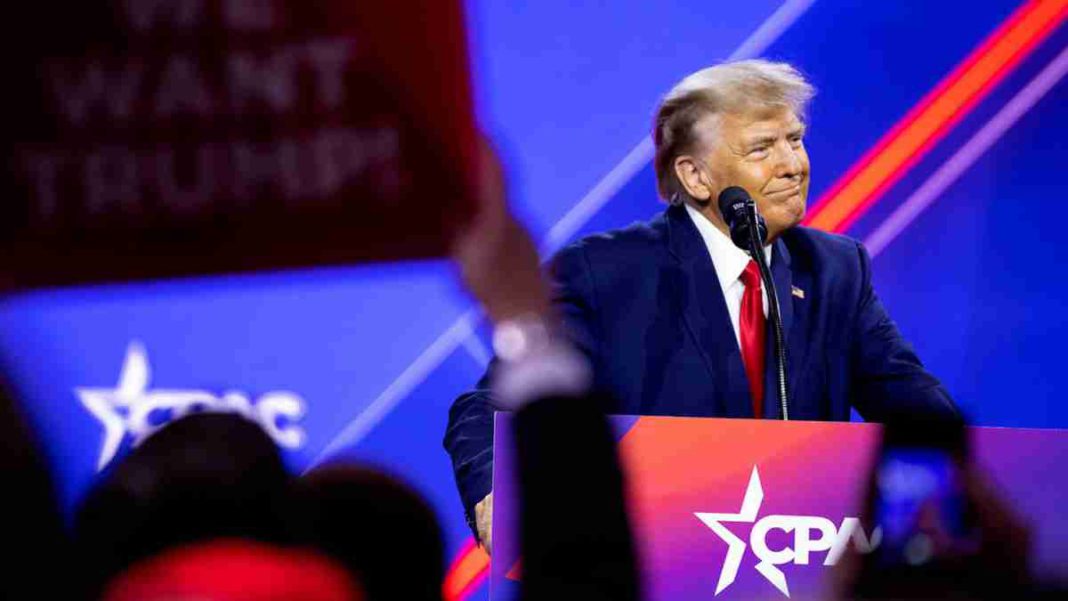UNITED STATES: A judge ruled on Tuesday that Donald Trump will go on criminal trial in New York on March 25, 2024, meaning the former U.S. President will be on trial while his campaign for the Republican nomination in 2024 is in full gear.
Trump, who is accused of fabricating financial documents to hide a hush money payment to a porn star, is anticipated to travel around the nation next spring as states stage presidential nominating contests with his competitors.
Justice Juan Merchan of Manhattan State Court announced the date at a hearing in which the former US President, the leading candidate for the Republican nomination in 2024 and the first former president to face criminal charges, appeared remotely from Florida.
Merchan also informed Trump of limitations on his ability to discuss specific evidence that prosecutors had provided in public. In Merchan’s courtroom, at least four screens showed Trump and his attorney, Todd Blanche, seated in front of American flags.
Trump has entered a not-guilty plea to 34 charges. After the hearing, he claimed that his right to free expression had been violated in a post on his Truth Social platform.
In his post, the former US President wrote, “They forced upon us a trial date of March 25th, right in the middle of the primary season. It’s called ELECTION INTERFERENCE.”
New York prosecutors say that Trump tried to hide reimbursements made to his then-attorney, Michael Cohen, for a $130,000 payment made to Daniels, whose actual name is Stephanie Clifford. Before the 2016 election, Cohen said he paid her in exchange for her silence on a sex incident she claimed to have had with Trump, which the former US President refutes.
The reimbursements, according to the prosecution, concealed violations of both New York election law and federal campaign finance laws.
The former US President didn’t say anything else during the hearing other than to show the judge a copy of the injunction he received on May 8 forbidding him from sharing certain information with media outlets or on social media.
Blanche stated that the former US President feared the order would violate his First Amendment right to free speech. He claimed, though, that he had told his client that Merchan had no plans to impede his speech and that the restriction did not constitute a ban on speaking about the topic in public.
Merchan stated that he did not intend to limit Trump’s capacity to campaign and that Trump “is certainly free to deny the charges; he is free to defend himself against the charges.”
On Tuesday, the judge warned that Trump might be found in contempt of court if he disobeyed the rules.
The limitations on the former US President relate to witness testimonies, grand jury transcripts, and other records that prosecutors must provide the defence with to set up the case.
The order, according to prosecutors, was necessary due to Trump’s history of attacks on social media and the possibility of witness harassment.
Also Read: Following Trump’s Comments on CNN, E Jean Carroll Files For Fresh Damages



